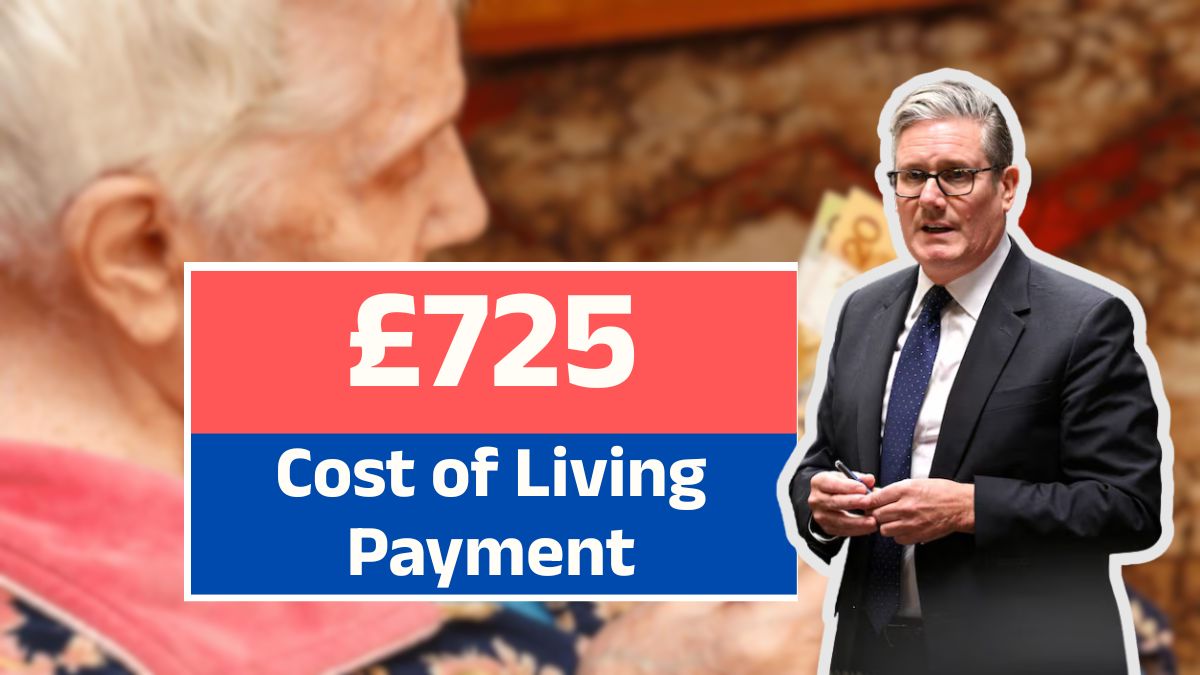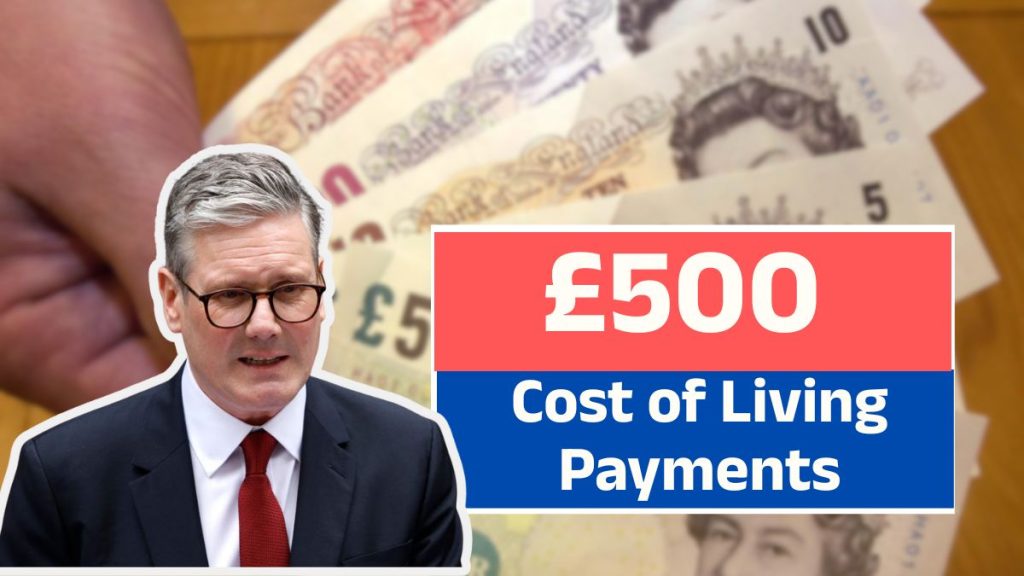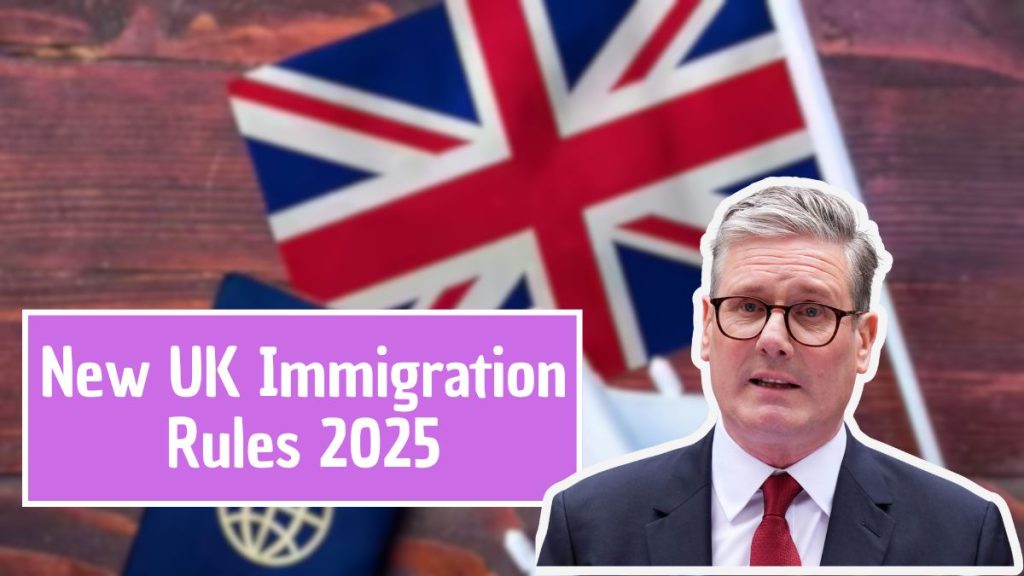The UK Government has announced a significant enhancement to its Housing Benefit Support scheme for 2025, aimed at helping low-income households manage rising rent and living costs. Under this initiative, eligible claimants could receive an additional £500 per month alongside their existing housing benefits.
This move is part of the government’s broader effort to ease financial pressure on vulnerable groups — including pensioners, disabled individuals, and working families — as the country continues to face persistent inflation and housing affordability challenges.
Purpose Behind the Extra £500 (Why the Scheme Matters)

The extra £500 monthly support is designed to bridge the gap between escalating rent prices and the existing Housing Benefit allowances. Since 2022, UK rents have seen substantial hikes, leaving many tenants struggling to meet their monthly payments.
By introducing this additional support, the government aims to:
- Prevent evictions and homelessness,
- Stabilise housing security for low-income families, and
- Free up more disposable income for essential costs like food, heating, and transportation.
For thousands of households, this initiative could mean the difference between keeping their home or falling into debt.
Who Can Apply for the Extra £500 (Eligibility Rules Explained)
The additional £500 is not automatically available to every Housing Benefit recipient. It is specifically targeted toward households that meet strict income and residency requirements.
To qualify, applicants must:
- Already receive Housing Benefit or be in the process of applying through their local authority.
- Have a rent liability (you must be paying rent to a landlord).
- Demonstrate financial hardship or a shortfall between your rent and current Housing Benefit entitlement.
The goal is to ensure the top-up reaches those genuinely struggling to keep up with rising rent costs.
Eligibility Criteria in Detail (What You’ll Need to Qualify)
To be considered for the additional £500 payment:
- Your total household income must fall below regional thresholds (which vary by council area).
- This income calculation includes wages, pensions, and most benefits.
- You’ll need to provide proof of tenancy, recent rent statements, and up-to-date bank details.
- Households with savings above a certain limit may receive reduced support or be deemed ineligible.
It’s essential to provide accurate and current documentation, as councils will verify financial information before approving applications.
How to Apply for the Enhanced Housing Benefit (Step-by-Step Process)
Applications are managed by local councils across England, Scotland, Wales, and Northern Ireland. Here’s how you can apply:
- Visit your local council’s website and locate the housing or benefits section.
- Submit your application online or visit your council office in person.
- Provide the following documents:
- Proof of identity and address.
- Tenancy agreement and rent statements.
- Recent payslips or proof of income.
- Bank statements and National Insurance number.
If you’re already receiving Housing Benefit, your council may automatically review your case, but it’s best to confirm proactively to avoid missing out.
Payment Schedule and Processing Times (When to Expect the £500)
Once your application is approved, the additional £500 will be added to your existing Housing Benefit payments.
Key details include:
- Processing time typically ranges from four to six weeks.
- Payments are made directly to your bank account or, in some cases, to your landlord to cover rent arrears.
- The payment will follow your usual benefit cycle, ensuring consistency and reliability.
Delays may occur if documentation is incomplete or if verification checks take longer than expected.
How the £500 Affects Other Benefits (Important DWP Clarification)
The Department for Work and Pensions (DWP) has clarified that this extra £500 will be classified as a housing cost supplement, not as income.
This distinction is crucial because it means the payment should not negatively affect:
- Universal Credit,
- Council Tax Support, or
- Other means-tested benefits.
However, claimants are still required to report the new payment to the relevant departments to ensure transparency and prevent overpayment issues.
Extra Support for Pensioners and Vulnerable Groups (Targeted Help)
The government expects that pensioners, disabled residents, and families with dependent children will benefit most from the enhanced support.
Local councils have been encouraged to offer additional discretionary payments in cases of exceptional hardship, such as:
- Temporary relocations,
- Disability-related housing adaptations, or
- Sudden increases in rent.
Charities and organisations such as Citizens Advice and Shelter UK can assist claimants with guidance on eligibility, appeals, and documentation.
Regional Variations in the Scheme (Differences Across the UK)
While the £500 top-up applies nationwide, administration may vary by region.
For example:
- Scottish councils often provide higher local housing allowances to reflect rent levels in major cities.
- Welsh authorities may integrate the scheme with local hardship grants.
- Northern Ireland operates through the Housing Executive, with unique criteria for social tenants.
It’s essential to check your local council’s guidance for deadlines, thresholds, and verification requirements before applying.
Preparing Your Documents Before Applying (Avoid Common Delays)
Having the correct paperwork ready can speed up the process. Prepare the following:
- Current tenancy agreement or rent book.
- Recent bank statements and payslips.
- Proof of income, benefits, or pensions.
- National Insurance number and valid ID.
Ensure all information matches your application details. Submitting incomplete or outdated documents is one of the main causes of delays in approval
Common Reasons for Delays or Rejections (How to Avoid Mistakes)
Councils may delay or refuse applications if:
- Bank details are incorrect or outdated.
- Rent statements are missing or incomplete.
- Income declarations are inconsistent with records.
To avoid issues:
- Double-check your form before submission.
- Respond quickly to council requests for clarification.
- Keep copies of all submitted documents and correspondence.
If your claim is rejected, you have the right to appeal or request a mandatory reconsideration
Combining Housing Benefit with Other Support (Extra Options Available)
If your rent remains high even after receiving the £500 top-up, you might still qualify for Discretionary Housing Payments (DHPs).
DHPs are short-term grants provided by councils to:
- Cover remaining rent gaps,
- Help with deposits or moving costs, or
- Assist during temporary financial crises.
Applying for a DHP is a separate process but does not usually affect your eligibility for the enhanced Housing Benefit.
Government’s Long-Term Housing Strategy (Future Outlook)
The enhanced support is part of a broader review of housing affordability and welfare policy.
Officials have confirmed that the scheme will be reviewed annually, with potential updates that may:
- Adjust payment amounts to match rent inflation,
- Introduce new regional thresholds, or
- Merge the scheme with Universal Credit housing components.
The DWP’s long-term aim is to create a simplified, responsive housing support system that better reflects local needs.
Tips for Maximising Your Entitlement (Practical Guidance)
To make the most of the new scheme:
- Check your eligibility regularly, especially if your income changes.
- Keep your rent documents and pay details up to date.
- Use benefit calculators from trusted organisations like Turn2Us or Citizens Advice.
- Respond promptly to any communication from your council.
- Seek free, professional advice if you face uncertainty or delays.
Being proactive can ensure you receive your full entitlement without interruptions.
What the Extra £500 Means for Households (Broader Impact)
For thousands of low-income tenants, the enhanced Housing Benefit could provide critical relief during a difficult economic period.
The additional £500 a month could help:
- Clear rent arrears and prevent eviction.
- Improve living standards by freeing funds for essentials.
- Strengthen financial stability for families and pensioners alike.
Ultimately, the government hopes that by investing in housing security, it can reduce homelessness rates and strengthen local economies through improved household stability.
(5) Frequently Asked Questions (FAQs)
Q1. What is the new £500 Housing Benefit top-up?
It’s an additional monthly payment introduced by the UK government in 2025 to help low-income households cover rising rent and housing costs.
Q2. Who is eligible for the extra £500 payment?
Households already receiving Housing Benefit and meeting income, savings, and residency criteria can qualify. You must show a shortfall between rent and your current benefit.
Q3. How can I apply for the enhanced Housing Benefit?
Applications are managed by your local council. You can apply online or in person, submitting proof of rent, income, and identification.
Q4. Will the £500 top-up affect my Universal Credit or other benefits?
No. The Department for Work and Pensions treats this payment as a housing cost supplement, so it should not reduce other entitlements.
Q5. When will the payments begin?
Once approved, payments will typically be added to your existing Housing Benefit within four to six weeks, following your normal payment cycle.




















